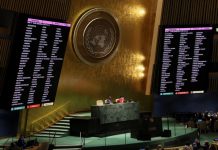Just months after Beijing’s implementation of the national security law in Hong Kong, the once semi autonomous city is shifting towards autocratic control.
In early November, Beijing mandated the expulsion of four pro democracy legislators after it was termed illegal to advocate for independence and to not recognize Beijing’s sovereignty over Hong Kong. This was followed by the resignation of all members in the opposition camp.
The national security law is based on China’s move to ensure the city has a legal framework to deal with what it sees as serious challenges to its authority. It is termed as ‘dangerously vague and broad’ by Amnesty International, meaning virtually anything could be deemed a threat to “national security” under its provisions, and it can apply to anyone.
On June 30, the law came into effect, giving Beijing immense power over Hong Kong which critics say inhibits protest and freedom of speech while China believes it will restore stability.
“It is clear that the law will have a severe impact on freedom of expression, if not personal security, on the people of Hong Kong,” Professor Johannes Chan, a legal scholar at the University of Hong Kong, told the BBC.









